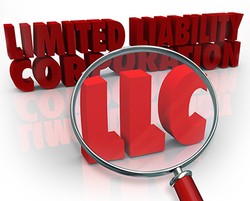Before you incorporate your company, there are two big decisions you need to make. First, what type of entity will offer you the most advantages? Next, which state is best for incorporation? Most start-ups just incorporate in their home state, although a growing number choose to incorporate their business in a different state, particularly Delaware. So, what makes Delaware so popular and why is it the legal state of nearly 60% of the Fortune 500? There are many reasons for this.
Let's take a look at the 5 biggest advantages of incorporating in Delaware, regardless of the type of entity you select.




 5 Steps to Starting Your Own Businesson 05/27/2016
5 Steps to Starting Your Own Businesson 05/27/2016
 Tips for Getting Certified as a Women Owned Businesson 05/06/2016
Tips for Getting Certified as a Women Owned Businesson 05/06/2016
 Tips for Writing Your LLC Articles of Organizationon 01/19/2016
Tips for Writing Your LLC Articles of Organizationon 01/19/2016
 Important Reasons to Incorporate Your Nonprofiton 09/14/2015
Important Reasons to Incorporate Your Nonprofiton 09/14/2015


Comments